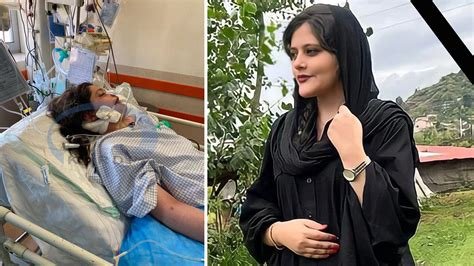I wonder if the UCLA women supporting Hamas & Gaza have the slightest inkling of what their lives would be like under Sharia Law.
This article enumerates some of the issues, though is not a definitive list. If readers find an error or omission, please DM me @kevinhay77 on Twi𝕏, (or email the editor@catholicarena.com)
Schools of Islamic Law
Many Muslims follow the moderate Hanafi school of Sharia Law but there are 4 other main “schools”, some which are fundamentalist in their interpretation of the Law. [Four Sunni schools: Hanbali, Maliki, Shafi’i & Hanafi: One Shia school: Jaafari.]
Sharia Law for women
Some interpretations are quite liberal — below are a few Canadian principles:
Women are to be educated.
Women are entitled to their own opinion and may also vote.
Women are permitted to drive.
Women can work and operate businesses.
A woman has a right to give testimony.
Women can participate in leadership positions.
Women can lead prayer.
Women have the final say in choosing who they wish to marry.
Women keep their last name after marriage.
Women are not islamically obliged to cook for their husbands.
Women have the full right to their own wealth.
Women are not owned, controlled or abused.
Women have a right to initiate divorce.
Women will also enter Paradise.
Women are equal to men.
That said, Sharia Law can be tough in relation to western values:
A non-Muslim man who marries a Muslim woman is punishable by death.
Girls' clitoris should be cut (Muhammad's words, Book 41, Kitab Al-Adab, Hadith 5251).
Girls can be sodomized up till 8 years old and vaginally raped after 8 years of age (see Islam & Sex).
A woman or girl who has been raped cannot testify in court against her rapist(s).
Testimonies of 4 male witnesses are required to prove rape of a female (Quran 24:13).
A woman or girl who alleges rape without producing 4 male witnesses is guilty of adultery.
A woman or girl found guilty of adultery is punishable by death.
A male convicted of rape can have his conviction dismissed by marrying his victim.
Muslim men have sexual rights to any woman/girl not wearing the Hijab (see Taharrush).
A woman can have 1 husband, who can have up to 4 wives; Muhammad can have more.
A man can beat his wife for insubordination (see Quran 4:34).
A man can unilaterally divorce his wife; a wife needs her husband's consent to divorce.
A divorced wife loses custody of all children over 6 years of age or when they exceed it.
A woman's testimony in court, allowed in property cases, carries ½ the weight of a man's.
A female heir inherits half of what a male heir inherits (see Mathematics in Quran).
A woman cannot speak alone to a man who is not her husband or relative.
Countries like Afghanistan, Iran and Saudi Arabia hold to strict versions of Sharia Law. Violent Islamic organizations also push the fundamentalist agenda. These include: Al-Qaeda; the Taliban; Armed Islamic Group of Algeria; Boko Haram in Nigeria; Egyptian Islamic Jihad; Indian Mujahideen; The Islamic State and Hamas.
Afghanistan / Taliban
Most know the Taliban’s restrictions on Afghan women. In 2021:
Saudi Arabia
(abaya)
Since 2018, women are not required to wear the abaya in public, though they are required to dress modestly. (Heavy make-up is still considered to be inappropriate.)
Women have the right to get their own passport; to travel abroad and to live independently without the permission of a male guardian / “wali”. Women may drive alone and may undertake the pilgrimage to Mecca without a male guardian (as part of a group of women.) More importantly, now Saudi women may not be divorced without their knowledge.
Still, a male relative is required to give permission for a woman to marry; start certain types of business; leave prison; leave a domestic abuse shelter or to seek a legal abortion (allowed on the basis of health or therapeutic grounds.)
Iran
Mahsa Amini
Veils
An opinion poll conducted in 2014 by The University of Michigan’s Institute for Social Research asked residents of seven Muslim-majority countries (Egypt, Iraq, Lebanon, Tunisia, Turkey, Pakistan, and Saudi Arabia) which women’s dress they consider to be most appropriate in public. The survey found that the headscarf was chosen by the majority of respondents in Egypt, Iraq, Tunisia, and Turkey. Saudi Arabia was the most conservative where 63% stated the niqab; in Pakistan, the niqab is also the most popular, the full-length chador robe and the headscarf, received about a third of the votes each; while in Lebanon half of the respondents in the sample opted for no head covering at all. (sorry: reference lost.)
Honour Killing
Honour killing is not limited to Muslim countries, but the majority of the ~5000 killings per annum world-wide are in “the Middle East and South Asia, with nearly half of all honor killings occurring in India and Pakistan.”
Conclusion
Most Muslims are good people and many aspects of Islam are commendable. That said, Islam is a conservative religion — ‘modern’ liberated western women are not good candidates!
Kevin Hay
You can follow Kevin on 𝕏 / Twi𝕏 / Twitter @kevinhay77









